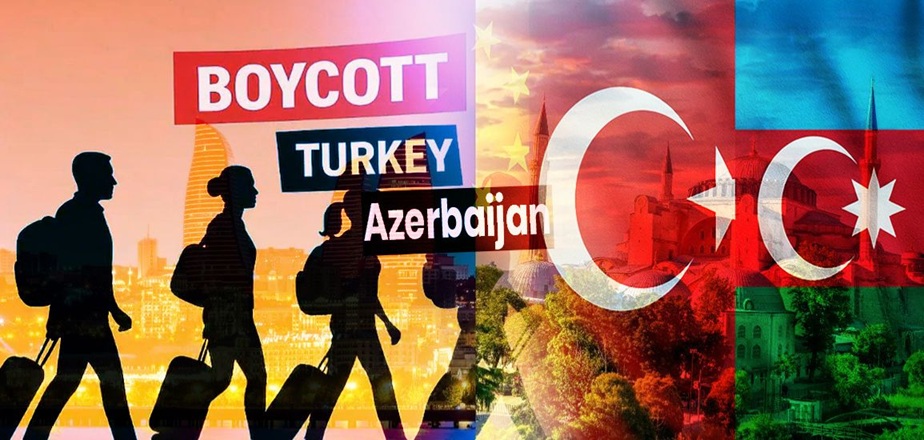In the wake of rising tensions between India and Pakistan, the global diplomatic landscape has seen a disturbing turn. Turkey and Azerbaijan have openly supported Pakistan not just politically, but also militarily—allegedly supplying weapons during the recent Indo-Pak conflict. This move has deeply angered Indian citizens and prompted a nationwide boycott of Turkish and Azerbaijani products and tourism.
The Fallout: National Sentiment Turns into Action
India, known for its strong and vocal civil society, has responded swiftly. Social media campaigns such as #BoycottTurkey and #BoycottAzerbaijan are trending across platforms like X (formerly Twitter), Instagram, and Facebook. However, this isn’t just an online trend—tangible actions are being taken on the ground.
Tourism Industry Hit Hard
Indians have started cancelling flights and hotel bookings to both Turkey and Azerbaijan, especially to popular destinations such as Istanbul, Cappadocia, Antalya, Baku, and Gabala. Major travel aggregators like MakeMyTrip and Yatra have reported a sharp decline in bookings to these countries.
According to recent travel agency data, flight cancellations to Istanbul have jumped by over 40%, and hotel bookings for the summer season in Baku have dropped by nearly 60% in just a week.
In response, some Indian tour operators have even removed Turkey and Azerbaijan from their international packages, replacing them with neutral destinations like Greece, Vietnam, and Georgia.
Tit-for-Tat Visa Denials and Warnings
Tourist hostility has spilled over into diplomatic and personal domains. Many Indian travelers have reported delays or outright rejections in visa applications for Turkey and Azerbaijan.
At the same time, several Indian hotels and private operators are refusing service to tourists from Turkey and Azerbaijan, citing public sentiment and security concerns.
Economic Backlash: Falling Demand for Turkish and Azerbaijani Goods
The economic ramifications are also becoming visible. Imports of Turkish and Azerbaijani goods, especially in sectors like:
Fruits (apples, cherries, pomegranates)
Marble and tiles
Hazelnuts, dry fruits, and confectioneries
Textiles and carpets
...have seen a significant drop in demand.
Major Indian retailers and wholesalers in Delhi, Mumbai, Hyderabad, and Ahmedabad have started phasing out Turkish and Azerbaijani products, replacing them with local or alternative imports. Some marble and granite dealers have gone as far as publicly labeling their stores as “Turkey-Free Zones.”
Why This Matters: National Pride Over Profit
For many Indians, this boycott isn’t about economics—it’s about national integrity. When countries choose to align with hostile actors against India, they must understand there are consequences. The Indian consumer is both powerful and patriotic. This is not the first time we’ve seen this kind of movement—similar boycotts were undertaken against Chinese products in the past, with visible results.
Conclusion: A Message to the World
India’s stand is clear: any nation that supports aggression against us will not profit from us. The boycott of Turkey and Azerbaijan sends a strong message to the global community—diplomatic and military support to India’s enemies will not go unanswered.
As this movement gains momentum, it remains to be seen whether Turkey and Azerbaijan will reconsider their strategic alliances. Until then, Indians are choosing loyalty over leisure, and patriotism over profit.
